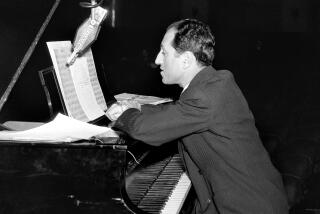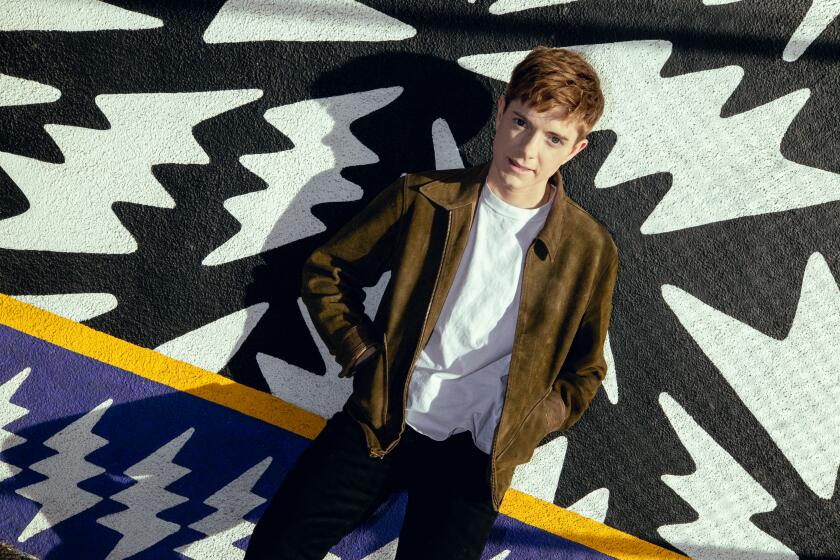WEEKEND REVIEW : Jazz : Pianists Marsalis, Roberts Share a Few Fine Moments
- Share via
It had the look of a promising evening: Ellis Marsalis, the paterfamilias of the most renowned jazz clan of the day and a pianist whose natty ease and flow are well documented on his new album, “Joe Cool’s Blues,” paired with fellow pianist Marcus Roberts, acclaimed for his conspicuously researched and often very lively musical gazes at jazz’s past.
And at times--when the two artists appeared on Saturday at the Carpenter Performing Arts Center--working unaccompanied, or as a duo, that promise was fulfilled.
Roberts’ long and idiosyncratic take on Gershwin’s “Rhapsody in Blue,” packed with excitement and surprise as he took one liberty after another, had several choice moments, as did his version of “I Didn’t Know What Time It Was,” where he made the piano sing. Marsalis brought an unexpected air to “It Don’t Mean a Thing,” segueing from a densely textured melody reading to a solo that blended moody explorations with more light and flowery statements.
Unfortunately, there were numerous flat spots to counter these bright points in the program. During his opening portion to the show, Marsalis, who claimed at one point to be tired, often played like he was, delivering brief renditions that didn’t go much beneath his songs’ surfaces. (His stage manner was distant as well, as he looked straight over his piano, rather than at the audience as he made his introductions.)
Versions of Randy Weston’s “Little Niles” and Ellington’s “Sophisticated Lady” were done professionally and with a smooth mix of swinging lines and occasional be-bop-based complexities, but they exuded little of the spine and allure that characterizes his best work.
*
Roberts fared better on his two solo numbers, particularly on “Rhapsody,” which was full of risky improvisations in a powerful two-handed stride style that sometimes proved ungainly and muddy. But tackling the lengthy Gershwin opus left him little room to explore his jazz personality, and during the second-half duos--as the two offered such items as Ellington’s “Cottontail,” Coltrane’s “Mr. Day” and the old flag-waver, “Limehouse Blues”--he seemed to prefer to let Marsalis take charge.
Here, Marsalis’ bluesy inflections and spirited bop ideas came more to the fore and contrasted with Roberts’ more prosaic statements that brought to mind the styles of Fats Waller, Ellington, Teddy Wilson and occasionally McCoy Tyner.
More to Read
The biggest entertainment stories
Get our big stories about Hollywood, film, television, music, arts, culture and more right in your inbox as soon as they publish.
You may occasionally receive promotional content from the Los Angeles Times.










